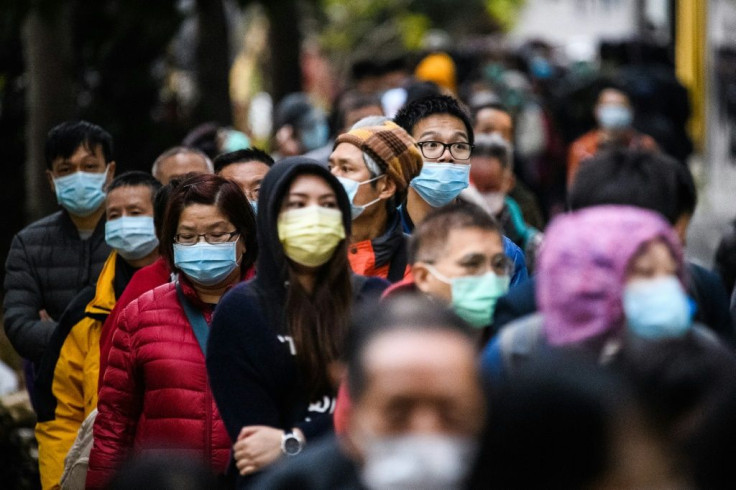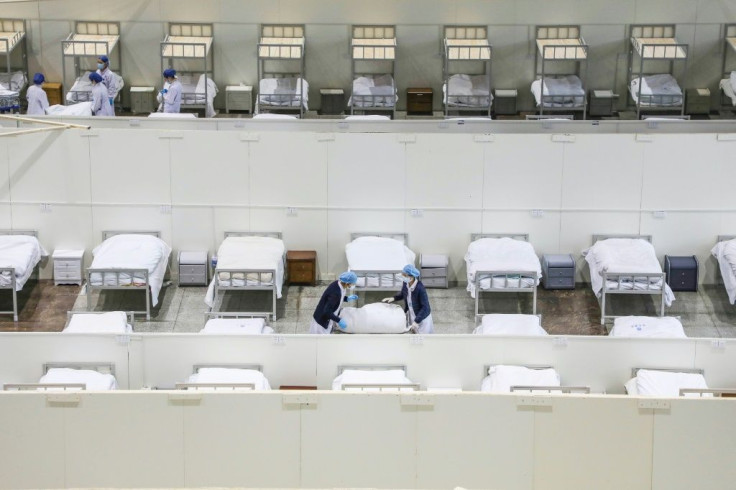China Coronavirus Update: WHO Launches $675 Million Response Plan To Fight Virus Outbreak

KEY POINTS
- The World Health Organization has launched a global program to combat the fast-spreading Wuhan coronavirus outbreak
- The program will need $675 million in funding
- The Bill and Melinda Gates Foundation will also provide $100 million to support the program
A week after declaring the fast-spreading Novel coronavirus (2019-nCoV) a global health emergency on January 30, the World Health Organization (WHO) Thursday appealed for a $675 million funding for a new preparedness and response plan to combat the coronavirus, especially in countries that are “at risk.”
"We are requesting $675 million to fund the plan for the next three months. $60 million of that is to fund WHO’s operations -- the rest is for the countries that are especially at risk," said WHO Director-General Dr Tedros Adhanom Ghebreyesus at WHO headquarters in Geneva, Switzerland.
Dr Ghebreyesus said the $675 million will primarily fund the Strategic Preparedness and Response Plan (SPRP) that aims to support countries in preventing, detecting and diagnosing onward transmission of the illness, WHO said in a report.
"Our message to the international community is: invest today, or pay more later," he said. "$675 million is a lot of money, but it is much less than the bill we will face if we do not invest in preparedness now."
Ghebreyesus also said it's released a total of $9 million from its own contingency fund for emergency situations such as the Wuhan coronavirus outbreak. He revealed the Bill and Melinda Gates Foundation had already offered to provide $100 million toward the effort.
WHO will also send half a million masks, 350,000 pairs of gloves, 40,000 respirators and almost 18,000 isolation gowns to the countries affected by the outbreak.
"My biggest worry is that there are countries today who do not have the systems in place to detect people who have contracted with the virus, even if it were to emerge," said Dr Ghebreyesus.
"Urgent support is needed to bolster weak health systems to detect, diagnose and care for people with the virus, to prevent further human to human transmission and protect health workers."
WHO counts on the new SPRP to attain this aim. SPRP lists activities and resources needed by WHO and international health organizations globally to implement priority public health measures in support of countries to prepare and respond to nCoV-2019 from February to April 2020.
Among SPRP's key objectives are to limit human-to-human transmission of the coronavirus, especially in the most vulnerable countries if they were to face an outbreak; identify, isolate and care for patients early; and reduce virus spread from animal sources.

During the meeting, WHO announced the last 24 hours saw the highest number of new coronavirus cases in a single day since the start of the outbreak in December 2019. As of Thursday and relying on Chinese data, WHO said there were 24,363 confirmed cases in China, including 490 deaths.
Outside of China, there are 191 cases in 24 countries and one reported death in the Philippines and Hong Kong. WHO said 31 of the cases outside of China occurred in people with no travel history to China. On the other hand, all these cases are “confirmed close contacts of someone who traveled to or was from Wuhan.”
As of Friday morning, Hong Kong time, however, China's National Health Commission reported 28,403 confirmed cases and 567 deaths.
© Copyright IBTimes 2025. All rights reserved.





















